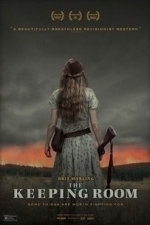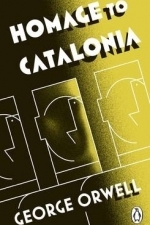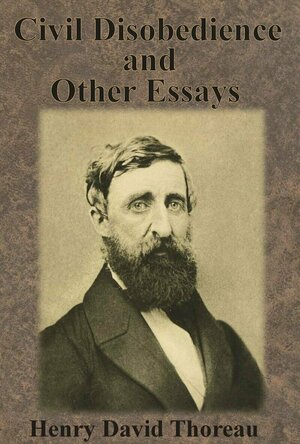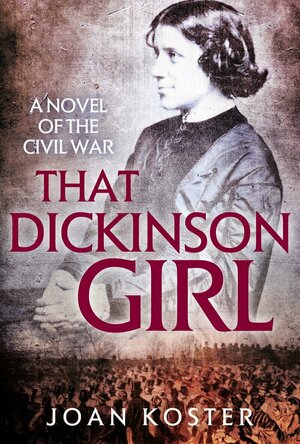
That Dickinson Girl (Forgotten Women #1)
Book
She’s going to be the greatest orator of the Civil War! Eighteen-year-old Anna Dickinson is...
Historical Biographical Fiction
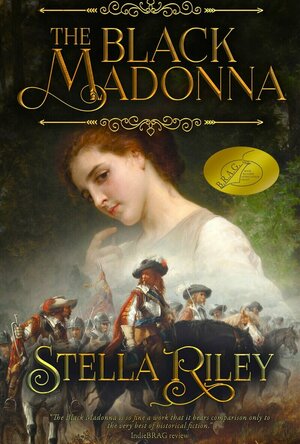
The Black Madonna (Roundheads and Cavaliers #1)
Book
As England slides into Civil War, master-goldsmith and money-lender, Luciano Falcieri del Santi...
Historical Fiction Historical Romance English Civil War
Darren (1599 KP) rated The Keeping Room (2015) in Movies
Aug 6, 2019
The women soon become targets for the rogue soldiers Moses (Worthington) and Henry (Soller), without the normal support they must defend their home before the war comes to them.
Thoughts on The Keeping Room
Characters – Augusta is the lady of the house, keeping Louise in line, while making it fair for everyone under the roof, no matter what their status is. She will be the one that will go for help and risk her life to protect the rest. Louise is the younger of the two women, she doesn’t like being forced into work believing the slave should do it all, her failure to follow instructions only makes it difficult for Augusta. Mad is the slave that has been welcomed as part of the family, joining in the defence of the home too. Moses is one of the soldiers that is leaving a path of destruction as they run away from the war. He targets the women’s home and the women to make his own for the time being.
Performances – Brit Marling is good in the leading role, we see strong performances from the three women if we are being honest, Hailee Steinfeld continues to show her ability, where as unknown Muna Otaru should be a name we pay more attention too. Sam Worthington does a fine job in the villainous role where we see him deliver lines in a disturbing manner.
Story – The story follows three women that must put their classes a side during the American Civil War to protect their home from rogue soldiers that only want to do unthinkable things to them. We get to see how the women do have their own problems to deal without the soldier adding to them, the unsure feeling about whether they will have the men in their lives returning to them. Once the soldiers arrive it does become a survival story which is good, it shows how difficult and risky it would be for either side just to attack they must focus on defending. The pacing of the story seems solid with giving away too much too early before leading to the night of the event.
Western – The film does use the western themes in the elements of the war time western not the wild west style it works well enough with the rogue soldiers trying to take a home.
Settings – The film uses the lone settings of the house in the middle of nowhere and the paths leading to it, to show us how isolated people would become during the war time.
Scene of the Movie – The night of the event.
That Moment That Annoyed Me – Certain parts feel slow though.
Final Thoughts – This is a slow-moving western that shows the effects of the civil war on the women left behind that could face their own uncertain future as the men out at war. It has strong performances and a dark feeling about what could happen next.
Overall: darkly depressive look at the American Civil War.
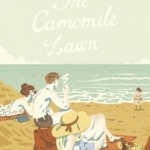
The Camomile Lawn
Book
Oliver is just back from the Spanish Civil War and world-weary at only nineteen. Calypso is...
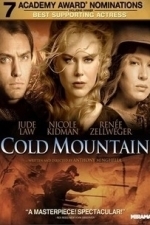
Cold Mountain (2003)
Movie Watch
.In this classic story of love and devotion set against the backdrop of the American Civil War, a...
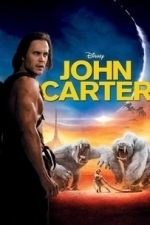
John Carter (2012)
Movie
When Civil War veteran John Carter (Taylor Kitsch) mysteriously awakes on the surface of Mars --...
fantasy scifi sciencefiction
William Finnegan recommended Homage to Catalonia in Books (curated)
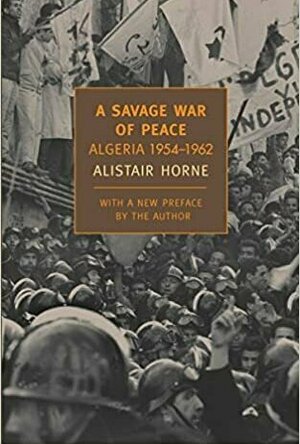
A Savage War of Peace
Book
The Algerian War lasted from 1954 to 1962. It caused the fall of six French governments, led to the...
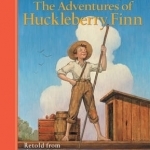
The Adventures of Huckleberry Finn: Retold from the Mark Twain Original
Mark Twain, Oliver Ho, Dan Andreasen and Arthur Pober
Book
Sail down the Mississippi with Huck Finn and the runaway slave, Jim. Twain's beloved tale, with its...
